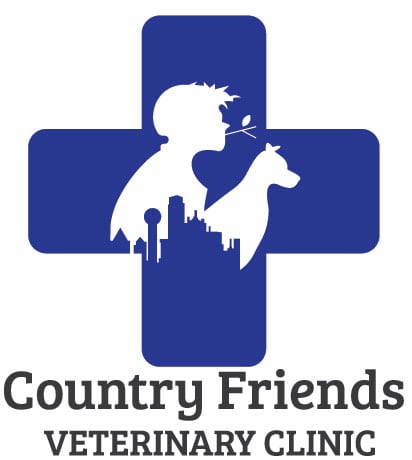Firework and Thunderstorm Anxiety in Pets

With the 4th of July on the near horizon I thought (I should be honest, Crystal our office manager thought) this would be an ideal time to discuss the extreme fear and anxiety some of us have had the misfortune to see expressed in our dogs. I wanted to start first with just a few basics and definitions to allow us to fully understand these conditions and then follow with a few guidelines about what we can do. Unfortunately, there is no miracle training technique or drug, but with persistence and training, you might be able to decrease the severity of your pet’s anxiety. Today I will focus on thunderstorm and noise phobia and discuss separation anxiety in a little more detail next week.
Fear is an instinctual feeling of apprehension that results from an external threat, whether real or perceived. This can be triggered by anything such as a strange person or another dog, a trip in the car or a trip to our hospital, a loud noise, a strange object, a new object, a quick movement, etc. Fear causes a response of the autonomic nervous system that prepares the body for the freeze, fight or flight syndrome. It is a normal behavior that is essential for adaptation and survival. How our pet reacts to this fear determines whether the response is normal, attempting to get away from the lady in a white coat (me) who just tried to poke him with a really pointy thing (shot), or abnormal, chewing through two doors and re-arranging furniture because of a thunderstorm or fireworks. The good news: most abnormal responses are learned and may be unlearned with gradual exposure.
Anxiety is a state of apprehension that results from the anticipation of a future danger from an unknown or imagined source. This results in the bodily reactions associated with fear, such as panting, pacing, trembling, excessive barking/crying, urination and defecation, diarrhea, and destruction. The pet’s response may be reasonable, not wanting to walk through the front door of Country Friends Veterinary Clinic, or unreasonable, chewing through a door because you left the house, when compared to the relative threat. The pet’s fear may persist long after the threat is gone. The most common anxiety we deal with is separation anxiety. Past experiences often contribute to these anxieties but some pets can have difficulty adjusting to simple changes to routines or exposure to new stimuli (don’t we all sometimes have this problem!).
Phobia is a persistent and excessive fear response to a specific stimulus, ie fireworks and/or thunderstorms. With a phobia once the stimulus is gone the fear and excessive behavior goes away.
Most fears, anxieties, and phobias develop at the beginning of social maturity around 1-3 years of age. Sometimes older dogs may develop anxiety, fears, and phobias due to illness, pain or a decline in mental thinking, learning and memory. Profound fear and withdrawal of an unknown cause have been documented in certain breeds, including the Siberian Husky, German Shorthaired Pointer, Chesapeake Bay Retriever, Bernese Mountain Dog, Great Pyrenees, Border Collie, and Standard Poodle.
Now time to address the issue that may be at the forefront of our minds with the 4th of July in our midst: Firework and Thunderstorm Phobia.
If you have a dog with this phobia, you are not alone. At Country Friends Veterinary Clinic we get numerous calls around New Year’s Day, during spring/summer thunderstorm activity and near the 4th of July from people requesting advice about this phobia in their dog. I had a dog, his name was Mac, with severe thunderstorm anxiety. I know how you feel. I was afraid to leave him alone in the yard or house during a thunderstorm for fear I would come home to a hole chewed/clawed into a door or cedar fence or worse yet find him missing because he chewed a hole in the fence (which did happen a few times, luckily I was able to find him quickly). It would never fail, the morning would be beautiful with no hint of rain. I would go to work and a few hours later here comes a nasty thunderstorm. Talk about stress and anxiety! There were a few times I had to leave work and rush home to make sure everything was okay. This type of phobia not only stresses the animals but stresses their owners as well. Anyone that has seen an animal with a firework/thunderstorm phobia knows that you cannot just say stop and all is done. These animals have intense anxiety. They pace, jump on and off the bed or in my case get in and out of the bathtub, pant incessantly and no matter what you do or say it does not stop until the loud noise goes away. A funny thing with my boy Mac, there was a positive to him becoming deaf when he was 12. No more storm anxiety. He had no storm anxiety for his last few years of life of which I am glad. I always hated seeing how fearful he got and the toll it took on his body.
What can you do? Each dog and family is different. Some mild cases will respond dramatically to the following and others may need medication occasionally or even long term.
-If your dog prefers to hide, give him/her a safe place to hide. If your dog is crate trained, sometimes the crate is sufficient. Closets, bathrooms and small rooms in the middle of the house may work as well and make your pet feel more comfortable.
-Make sure to close all doors and windows to limit noise.
-Loud music or white noise (there are noisemakers geared towards human infants that make white noise) may help mask the thunder and noise from fireworks.
-redirecting their anxiety with obedience exercises and/or fun activities (agility or food puzzle toys)
-Thunder shirts have gained popularity recently. They have a calming effect by applying gentle, constant pressure. www.thundershirt.com
-Recordings of thunderstorm sounds may be played by you to help desensitize them and help them associate the sounds with pleasant outcomes. Some websites that provide CD’s of noises and a training guide are:
http://www.mastersvoice–dog.com
–Remember these pets are in a fearful state and usually punishment or a negative response from you may just increase their anxiety. Try to stay calm and quiet. If you become anxious your pet will become more anxious. DO NOT PUNISH THEM.
For animals in which training does not help medications may be necessary. This needs to be discussed with your veterinarian. Please schedule a consultation if you feel medication may be necessary. Some medications may require baseline blood work to be done first.
Common medications used sporadically are:
-Acepromazine This cannot be used in dogs with seizures
-Diazepam (Valium)
-Alprazolam (Xanax)
Long-term medications may be necessary in severe cases:
-Fluoxetine
-Clomipramine
Next week Dr. Robin Westwood will discuss separation anxiety. In the meantime, if you have any questions about firework and thunderstorm phobia in your pet, please call us at Country Friends Veterinary Clinic at 972-636-9562.
Have a safe and happy Fourth of July!

